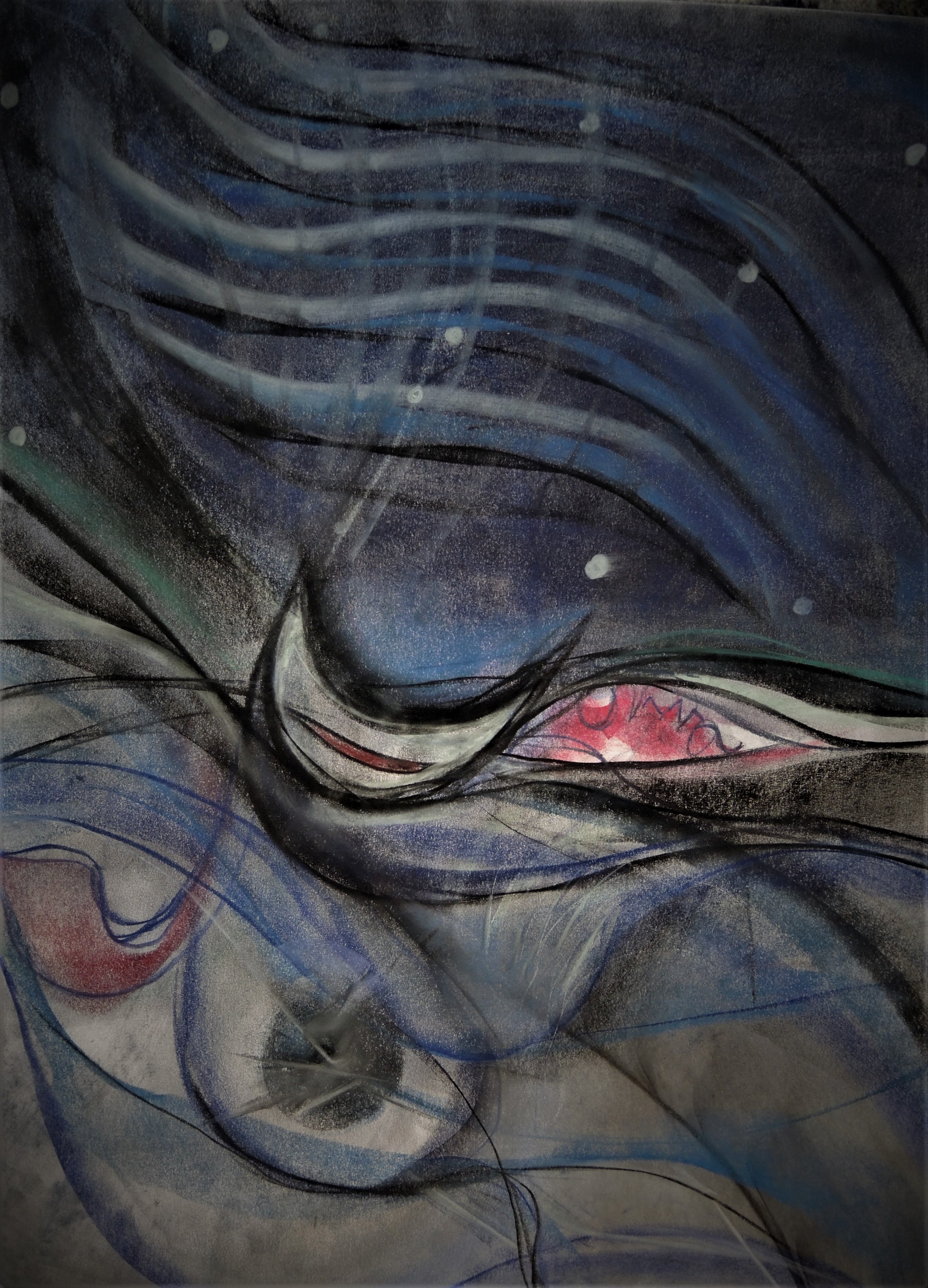My question to myself both personally and as a practitioner, as well as to my colleagues is, how far can we go in respecting our own and our clients’ numinous experiences at a symbolic level and assist in opening ourselves and them to the ensuing transformative inquiry?
An engaging way to approach this might be: to ask, “Who do I become in the presence of the impossible?” The impossible, it seems, is what we feel we are facing in trauma. It might also be what we are facing in the moment before the natural creativity of the human mind leaps into the unknown. Creating an image and stepping into it; this might be that leap of faith that calls upon the generative life force within and carries us through the midst of a turbulent unconscious. The journey of individuation often presents us with the meeting of the destructive/creative paradox, and the possibility of a larger awareness that touches the deepest part of our being.
The journey of individuation often presents us with the meeting of the destructive/creative paradox, and the possibility of a larger awareness that touches the deepest part of our being.
The Authentic Self and the false self seem to speak in different languages. They have different voices and speak of different things. What are they speaking about? What do they each tell us of ourselves? Therapy can be a place of inquiry into these voices and the inner figures they are connected to in relation to the Self, the Ego and the Shadow archetypes.
Insights_2018_Fall.pdf
https://bcacc.ca/wp-content/uploads/2022/10/Insights_2018_Fall.pdf
scroll down to page 27
Credentials
Susanna Ruebsaat PhD, MA, T.Ed, DVATI, BFA, BCATR, RCC, RCC-ACS, faculty member at Vancouver Art Therapy Institute, associate faculty member at City University in the Masters in Counselling Program (doctoral mentor), Art Therrapy Supervisor at The Vancouver Island Counselling Centre for Immigrants and Refugees, and Jungian and Psychoanalytically oriented therapist, registered clinical counsellor, clinical supervisor, instructor, author and registered art therapist. She offers one on one therapy sessions (with or without art making) and group workshops exploring life narratives (personal myths), and the process of transformation and individuation.
Susanna specializes in a symbolic approach to psychological work including supervision. Her doctoral research in trauma from a mythopoetic perspective offers an archetypal framing of the journey of individuation. Her book “Mourning the Dream/Amor Fati” was recently published with Wipf and Stock Publishers. Susanna has over twenty-five years of experience working with image and personality both intra-psychically and socially.
Individual sessions are on a sliding scale and can be arranged by contacting Susanna through the "contact us" above. Sessions are available for private exploration or supervision.
Susanna was formerly the provincial facilitator for the Children and Families Art Therapy Program at the BC Cancer Agency.

